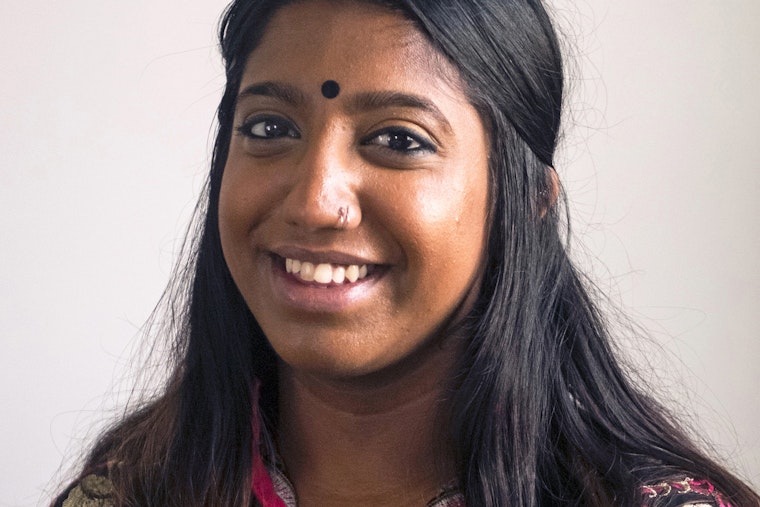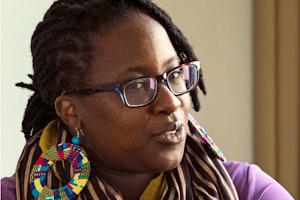Keeping Memories of Bangladesh Alive—Even the Most Painful Ones
By Tracey Gurd

The Open Society Youth Fellowship supports young activists and organizers in crafting solutions and youth-focused approaches to open society challenges. Fellow Sharmin Hossain is developing a digital narratives project that documents the extensive history and literature of Bangladeshi people. She talked to us about the project’s goals and the challenges her community faces.
Tell us about your fellowship project.
I’m a Bangladeshi New Yorker. I grew up in Queens, New York, which is a vibrant community of immigrants. We have about 50,000 Bangladeshis in New York alone, and we are among the fastest growing populations in the city. I grew up entrenched in South Asian culture, but with very little access to the history of my people.
Bangladesh is a country that has experienced two partitions—about 15 million were displaced as early as the 1970s. One million people were murdered by the East Pakistani military. That genocide has actively represented a lot of the history and social movement narratives my people come from.
So the South Asian Historical Memory Project was birthed out of a deep desire to reconcile a history that is covered in so much violence and silence.
How are you shaping this historical memory project?
It’s an intergenerational project that incorporates music and public theater as a way of sharing history with people that come from different languages and diasporic experiences. The Bangladeshi Historical Memory Project is intentionally queer woman of color–led, and extremely intentional in making sure that differently abled folks, folks that have undocumented status, and folks who are navigating migration and violence are at the center of it.
It is intended to make sure that generations after me will never say they don’t know a Bangladeshi writer or they never heard of Bangladesh. And for me this is more about making sure that the historical documentation is coming from working-class people that are not able to access academia or cultural institutions due to economic barriers.
Why should young people be part of this process?
Young people are excluded from history all the time, and we’re often excluded as thinkers and people who are philosophically involved in cultural production. It’s actually devastating how much adults have ownership over the narratives of our lives. So for me, the young people that don’t have access to this history are potentially going to perpetuate the same erasure as they grow older. I know the generation that came before did not do their job to teach me my history. As much as I love them and honor their work to bring us to where we are, there are also a lot of gaps in our diasporic identities because of migration and the violence of capitalism.
Young people need to find a way in which elders are tapped into for their knowledge, while gaining the skills to be the producers of this material. I think Bangladeshis are capable of being the most innovative young creators of material around caste, heteropatriarchy, imperialism, and capitalism. I have met graphic designers, amazing artists and creatives, and I would love to see this creative project blossom into initiatives where we are fighting for the liberation of our people coming from young people’s creative power.
What is the goal of your fellowship?
I’m going to be facilitating the production of a ’zine and digital archive, and I want to start producing videos featuring young people sharing their art through a platform of the Bangladeshi Historical Memory Project. Alongside working with Jana Sanskriti [a local organization in Calcutta], we will be producing a public theater project that will travel through different cities. I also want other troupes to form other public theater projects, where young people document their history together. I want folks throughout South Asia who are marginalized by the political conditions to feel inspired to start documenting this history.
What does leadership mean to you?
I see myself as a resource generator and as somebody who wants to connect people. I enjoy making sure that when I meet a brilliant young person that that person is connected to a mentor or somebody who can support their growth.
How do we make sure that young people are invested in this work not just for a paycheck, not just to get famous, but to be invested in a liberation process that’s lifelong? I think building communities of strong people that have each other’s backs is at the core of this. Our survival is dependent on each other. I think we are enough and that we have everything we need. We just need to make sure that we are taking control of it.
Until June 2016, Tracey Gurd was the division director of strategy at the Open Society Foundations.


